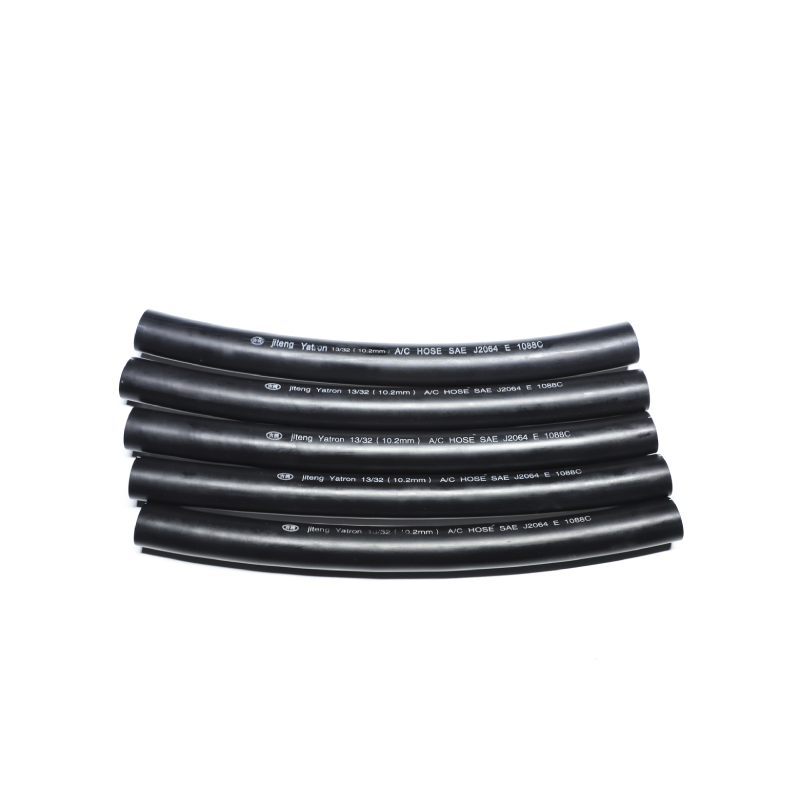Fuel Hose for Automotive Applications and Maintenance Tips
Dec . 10, 2024 23:49 Back to list
Fuel Hose for Automotive Applications and Maintenance Tips
Understanding the Importance of a Car Gas Hose
The car gas hose, often overlooked yet crucial, plays a vital role in the functioning and performance of your vehicle. It is primarily responsible for transporting fuel from the tank to the engine, ensuring that your vehicle can run smoothly. Given the significance of this component, understanding its functionality, types, maintenance, and potential issues is essential for every car owner.
What is a Car Gas Hose?
A car gas hose, also known as a fuel line, is a flexible conduit designed to carry gasoline or diesel fuel from the fuel tank to the fuel injectors or carburetor. This hose must withstand various environmental conditions, including extreme temperatures, pressure variations, and exposure to corrosive substances found in fuel. Typically made from durable rubber or reinforced plastic, these hoses are engineered for longevity and performance.
Types of Car Gas Hoses
There are two main types of gas hoses employed in vehicles fuel feed hoses and return hoses
.1. Fuel Feed Hoses These hoses are responsible for transporting fuel from the tank to the engine. They are designed to handle the high pressure generated by the fuel pump.
2. Return Hoses In systems where excess fuel needs to be returned to the tank (common in many petrol engines), return hoses facilitate this process. They ensure that the fuel delivery system maintains optimal efficiency by recycling unneeded fuel back into the tank.
Importance of Maintenance
car gas hose

Proper maintenance of the car gas hose can significantly enhance both your vehicle’s performance and safety. Over time, fuel hoses can become brittle or develop cracks due to exposure to heat, fuel additives, and environmental contaminants. Conducting regular inspections for wear and tear, listening for unusual noises while driving, and keeping an eye out for fuel leaks are essential practices that can save you from costly repairs or dangerous situations.
Signs of a Failing Gas Hose
Recognizing the signs of a failing gas hose is crucial for preventing potential hazards. Some common indicators include
- Fuel Smell A noticeable odor of gasoline around your vehicle can signal a leak. - Spotting Puddles Finding fuel puddles underneath your car is a clear sign of a damaged hose. - Engine Performance Issues If your engine hesitates or lacks power, it could be a result of insufficient fuel supply caused by a clogged or ruptured hose.
Replacement of the Gas Hose
If you suspect that your gas hose is damaged, it’s important to act swiftly. Replacing a faulty gas hose is not only crucial for maintaining vehicle efficiency but also essential for safety. Fuel leaks can pose significant fire hazards, particularly when combined with heat from the engine or exhaust. Always consult a professional mechanic for proper diagnosis and replacement procedures.
Conclusion
In summary, the car gas hose is an indispensable component of your vehicle’s fuel system. Understanding its role, types, maintenance tips, and signs of failure can help every car owner take proactive steps to ensure their vehicle remains safe and efficient. By prioritizing the condition of your gas hoses, you are not only protecting your investment but also ensuring a reliable and enjoyable driving experience. Regular checks and maintenance can go a long way in keeping you and your vehicle safe on the road.
